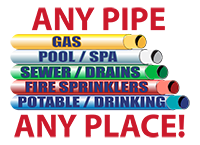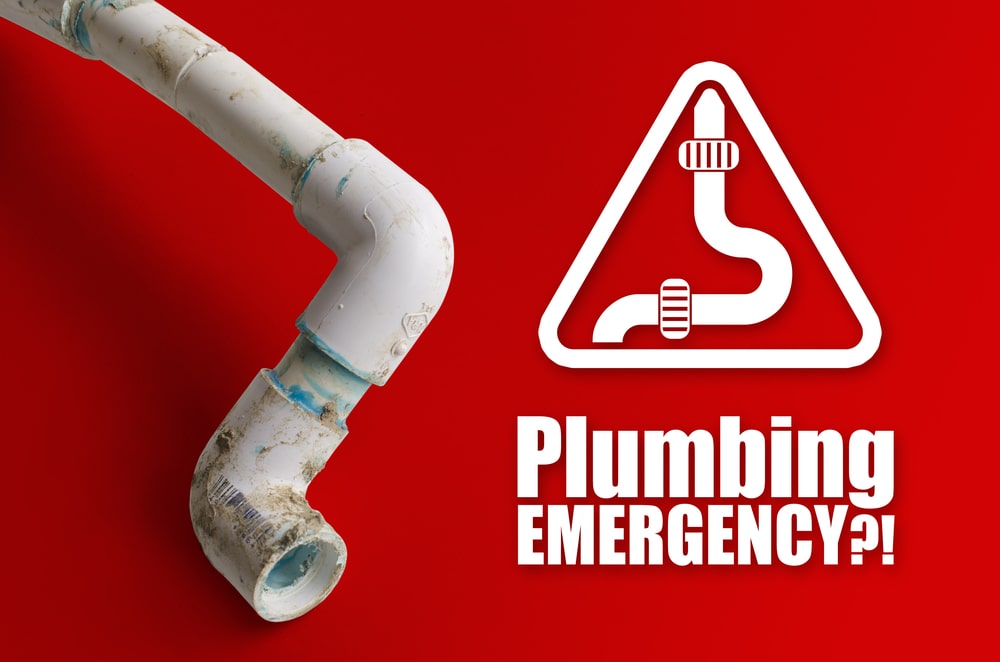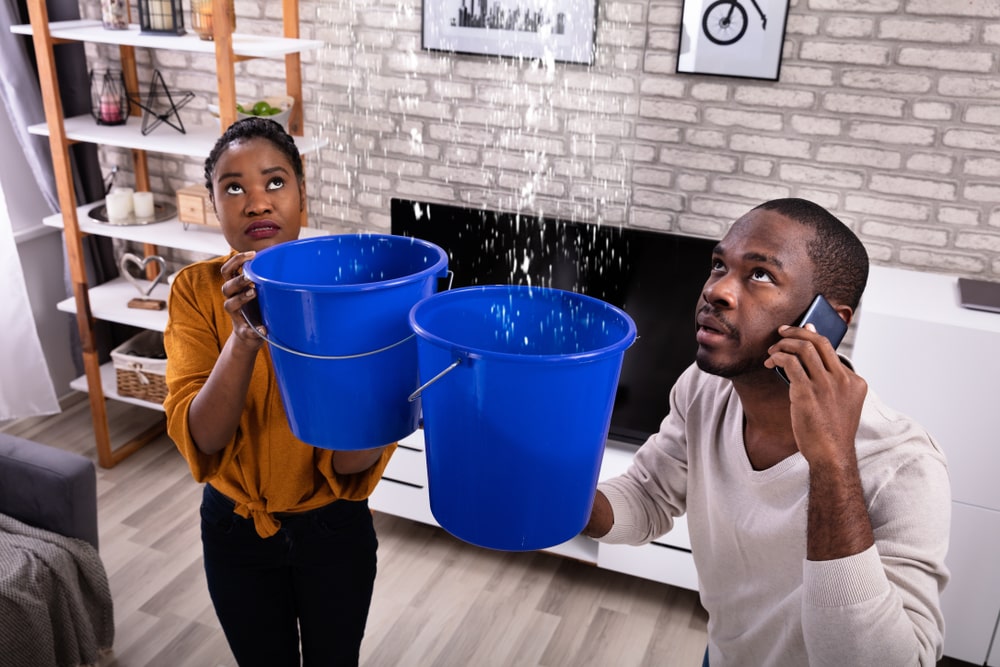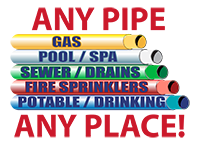A plumbing emergency can happen when you least expect it, like when you are in the middle of a bubble bath. Or maybe you have just finished cooking dinner and suddenly your sink starts to overflow. There are many reasons why a plumbing emergency might occur. It is important that you know how to recognize it and what to do when it does happen.
If you have a plumbing emergency, it is important to call a professional as soon as possible. Trying to fix the problem yourself can often make matters worse. Emergency plumbers have the training and experience needed to deal with all sorts of plumbing problems. They will also know how to properly shut off your water supply if necessary.
What are emergency plumbing services?
In the plumbing industry, there are two types of service calls: emergency and non-emergency. What differentiates the two? Emergency plumbing services are those that address a problem that poses an immediate threat to your home or business. This could be a burst pipe, a sewage backup, or a gas leak.
Non-emergency plumbing services, on the other hand, are scheduled in advance and are not as time-sensitive.
If you’re unsure whether or not your problem qualifies, it’s always best to err on the side of caution and call a professional.
When you call an emergency plumber, they will usually come out to your house as soon as possible. Depending on the time of day and the severity of the problem, they may be able to come within an hour or two. If the problem is more serious, they may have to come out the next day.
What is considered a plumbing emergency?
A plumbing emergency can be any type of problem that results in water or sewage leaks in your home. In most cases, these problems will need to be fixed immediately in order to prevent further damage to your home.
For instance, a slow drain might not seem like a big deal, but if it’s causing standing water in your sink, it can turn into a moldy, smelly mess. Minor leaks can not only damage the building’s structure but lead to a colossal waste of precious water.
Here are some of the issues that constitute a plumbing emergency:
Clogged toilet
If the toilet is clogged and overflows, then the water will seep into the floorboards and start to leak. This can cause a lot of damage to your property. Furthermore, if you don’t know how to fix it, then you’re going to have to call a plumber.
If you are not sure whether or not your clogged toilet is an emergency, there are certain signs that indicate that it’s time to call a plumber:
- You’ve tried pouring a bucket of water down the toilet and it still won’t flush
- You have tried plunging it or snaking it but nothing has worked
- You’ve noticed water leaking from the base of the toilet
- The water level in the bowl has risen significantly or is overflowing
- You notice a gurgling sound from the tub drain or shower when you flush the toilet (this is the sign of wastewater that is coming out of the drain)
- The clog is due to a foreign object or something valuable that you dropped down the toilet
When a toilet overflows or water starts seeping out from under the bathroom door, it’s considered a plumbing emergency. This is because a bursting toilet can cause major water damage to your home. If you have a bursting toilet:
- shut off the water to the toilet
- call an emergency plumber
- clean up any water that has already leaked
- Be sure to dry the area completely to help prevent mold or mildew growth.
Ruptured pipes
Ruptured pipes can cause a lot of damage to your property and can be very expensive to fix. This can include flooring, appliances, belongings, and drywall.
When pipes that carry hot water burst, they can cause serious burns if the water is not turned off. If the burst pipe is located close to an electrical panel, the risk of electrocution is high as current moves through it.
In addition, when a pipe that channels black or grey water bursts, it exposes everyone at home to harmful bacteria.
The following are some signs that you should look out for that constitute a plumbing emergency:
- A sudden, loud noise or hissing sound coming from your drains or toilets
- A water leak in the ceiling, walls, or flooring of your house
- The smell of sewage or rotten eggs coming from your toilet
- Water pooling in the basement or crawl space under your house
Sewer backup
A sewer backup is one of the most frustrating and potentially dangerous plumbing problems that a homeowner can face. Unfortunately, it is also one of the most common.
A sewer backup occurs when the main sewer line becomes clogged or blocked and sewage starts to back up into the home through the drains. This can happen for a number of reasons, but typically it is caused by a build-up of grease, hair, or other debris in the sewer line. In some cases, tree roots can also cause a sewer backup.
If you have a sewer backup, it is important to call a plumber right away. Sewage is very unsanitary and can cause serious health problems if it comes into contact with people or pets. It can also damage your home, causing water damage and mold growth.
A professional plumber uses tools such as a color sewer camera to accurately assess the situation and take steps to clear the blockage and restore your plumbing system to working order.
Multiple drain clogs
If you have multiple drain clogs, it is important to act fast and contact a professional plumbing company. This is because multiple drain clogs can quickly lead to a backup of water in your home, which can cause significant damage.
A professional plumbing company will be able to clear your drains quickly and efficiently, preventing any further damage to your home.
No access to water
There are many different types of emergency plumbing situations, but one of the most serious is when there is no access to water. This can be due to a number of factors, including a broken pipe or a blocked sewer line.
Faulty water heater
If your water heater is leaking or has no hot water, this is considered an emergency. You should turn off the power to the unit and call a plumbing professional as soon as possible. Here are some other signs that warrant a call to your local emergency plumber:
- It is taking a long time to warm up the water
- The water has an odor or is discolored
- You notice water puddles below the tank
- The water heater is making strange noises
- There is a decrease in hot water pressure or temperature
- Your utility bills have suddenly increased
Water leaks
Water leaks can occur anywhere in your home or office and can lead to a variety of problems, including mold growth, damage to property, and severe financial losses. According to the EPA (Environmental Protection Agency), leaks in U.S. households lead to ten thousand gallons of water being wasted each year. A leaky faucet alone can waste 3,000 gallons each year.
Here are some top reasons for water leaks:
- Damage from freezing temperatures
- Aged pipes
- Cracked or broken pipes
- Dripping faucets and leaky valves
- A faulty water heater
- Deteriorating supply lines
It’s important to fix the plumbing issues that are causing water leaks as soon as they arise. This is because the longer you wait, the worse the issue will get and the more time and money it will cost to fix.
Jammed garbage disposal
Garbage disposals typically jam because of a buildup of food. This causes the disposal to stop spinning and grinding. To clear the jam, you can use a wrench or pliers to manually turn the blades, or try pouring a liquid like dish detergent down the drain.
You can try to get it working again by following these steps:
- First, turn off the power to the disposal at the circuit breaker or fuse box.
- Check beneath the garbage disposal unit for a red button that may have popped out due to overheating. If this is the case, press it back and rerun the unit to test it.
- If you think there are objects that are obstructing the blades of your disposal unit, you can try using an Allen wrench. Ensure the disposal unit is turned off before using the wrench to move the blades and dislodge objects that are blocking the unit.
However, this is best left to emergency plumbers who have specialized tools to dislodge any particles that are obstructing the garbage disposal unit.
Sump pit malfunction
If your sump pit is overflowing, it could be due to a clog or blockage in the pit itself. If this is the case, you’ll need to call a professional plumber to clear the obstruction.
However, if your sump pit is simply not draining properly, it could be due to a malfunctioning float switch. This switch controls the pump that keeps the pit from overflowing. If the float switch is not working properly, it will need to be replaced.
Obstructed plumbing vents
Plumbing vents are pipes that carry water vapors and gases from a building’s plumbing system to the outdoors. These pipes are usually found in the basement or crawlspace of a building.
They help to release the pressure that builds up when water is being used and prevent pipes from bursting.
Clogged plumbing vents can cause major issues in your home. They can lead to floods, odors, and even health problems. If you spot these signs of a clogged vent, call an emergency plumber right away:
- A strong smell coming from the vents
- The toilet tank is empty
- The sound of gurgling water coming from the vents
- Sluggish drains
- Strange sounds coming from your drains or pipes
Inconsistent water pressure
There are a few things that could be causing your low water pressure, but the most common culprit is a clogged aerator. The aerator is located at the end of your faucet and its purpose is to mix air with water as it comes out of your faucet. Over time, the aerator can become clogged with minerals from hard water or debris, which reduces the flow of water.
Another possible cause of low water pressure is a leak in one of your home’s pipes. This can happen if a pipe freezes and then bursts, or if a joint becomes loose over time. If you suspect you have a leak, you should shut off the main water valve to your home and call an emergency plumber right away.
How to choose an emergency plumber in San Diego
If you’re like most people, you probably don’t think much about your plumbing until something goes wrong. Then, all of a sudden, you need an emergency plumber! But how do you choose the right one?
There are a few things to keep in mind when choosing an emergency plumber in San Diego. First, you’ll want to make sure that the plumber is licensed and insured. This will protect you in case anything goes wrong during the repair process.
The best emergency plumbers are trained to deal with a variety of plumbing problems. They will assess the situation and determine what needs to be done. In some cases, they may be able to fix the problem right then and there. In other cases, they may need to bring in specialized equipment or parts.
Next, it’s important to choose a plumber who offers 24/7 emergency plumbing service. This way, you won’t have to wait around for hours or even days for someone to come and fix your problem.
Finally, be sure to ask around for recommendations. Talk to your friends, family, and neighbors and see if they have any suggestions for a good emergency plumber in San Diego.
Contact San Diego Plumbing & Pipelining For 24/7 Emergency Plumbing Services
At San Diego Plumbing and Pipe Lining Company, we use advanced tools and techniques to offer quick inspection and efficient solutions for any plumbing emergency. Our 24 x 7 emergency plumbing services are reliable and come at no extra charge.
Give us a call now if you have a plumbing emergency.








